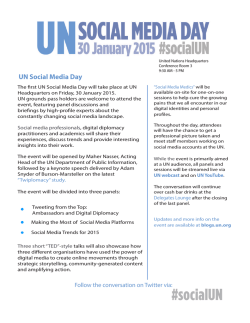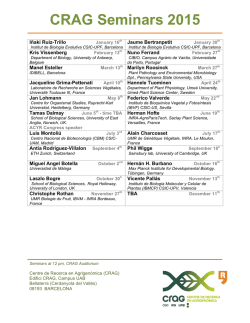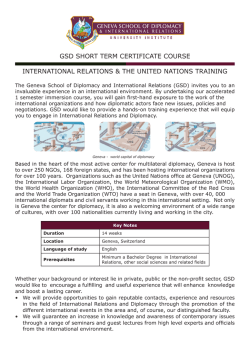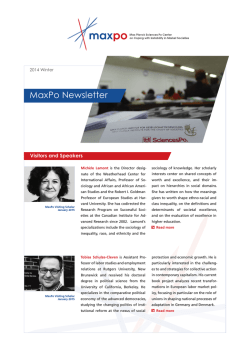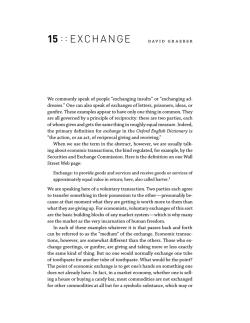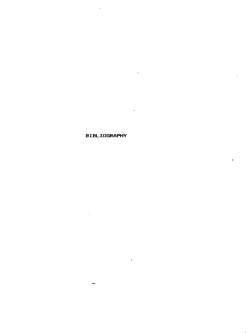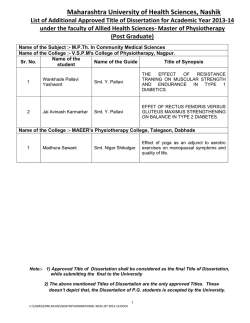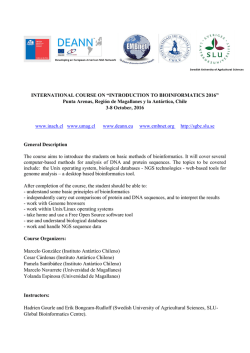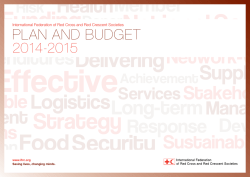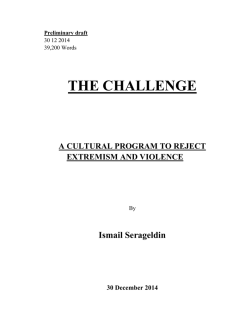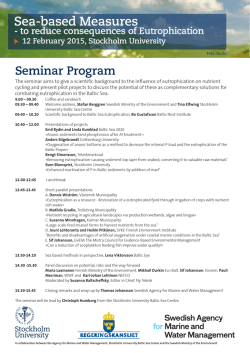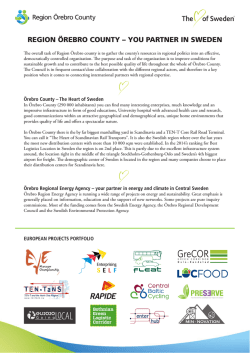
Sovjetunionen och svenska vänsällskap 1945–1958
Historiska studier: skrifter från Umeå universitet 8 Sovjetunionen och svenska vänsällskap 1945–1958 Sällskapen Sverige-Sovjetunionen som medel i sovjetisk strategi Olov Wenell Akademisk avhandling som med vederbörligt tillstånd av Rektor vid Umeå universitet för avläggande av filosofie doktorsexamen framläggs till offentligt försvar i Hörsal F, Humanisthuset, Fredagen den 20 februari, kl. 10:15. Avhandlingen kommer att försvaras på svenska. Fakultetsopponent: Docent, Håkan Blomqvist, Institution för historia och samtidsstudier, Södertörns högskola. Institution för idé- och samhällsstudier/Department of Historical, Philosophical and Religious Studies Umeå universitet/Umeå University Umeå 2015 Organization Document type Umeå University Doctoral thesis Department of Historical, Philosophical and Religious Studies Date of publication 20 February 2015 Author Olov Wenell Title The Soviet Union and Swedish friendship societies 1945–1958: The Swedish-Soviet societies as an instrument in Soviet strategy Abstract The purpose of this dissertation is to describe and analyze how the Soviet Union attempted to win the sympathies of the Swedish population during the period 1945-1958 through the All-Union Society for Cultural Relations with Foreign Countries (VOKS) and the Sweden-Soviet Union Societies. The dissertation includes the central Soviet decision-making apparatus’ general formulation of strategy and what means were to be used to win the sympathies of populations in other countries. Concerning VOKS’s work targeting Sweden, this dissertation examines the general strategies and means used in practice. This dissertation links these activities with realism which serves as an analytical framework. Realism focuses states seeking their security in the international system. Security is considered achievable through strategies for using different means of force, in this case, diplomacy and its sub-instruments in the form of soft power and public diplomacy. Immediately after World War II, VOKS was seen by the Soviets as a tool for countering American and British propaganda. VOKS’s reorganization in the early 1950s led to more country-specific activities. Gradually in the 1950s VOKS sought out partners from outside organizations associated with national communist parties. This strategy aimed to optimally convey the message and to popularize the Soviet Union. This also led to a decline in VOKS’s importance. VOKS during the period 1945-1958 can be viewed as a collaborative project between the state and the party. The Soviet Union, through VOKS, used the Sweden-USSR Society to popularize the country among the Swedish public. VOKS took increasingly greater control over the societies’ activities, which were reviewed and approved by the Soviet Embassy in Stockholm and VOKS in Moscow. To develop these societies, VOKS increased its efforts to influence the Communist Party of Sweden (SKP) to take part in the societies’ activities. At the suggestion of VOKS in Moscow, the local Sweden-USSR societies formed a national organization in the autumn of 1950 called the SwedenSoviet Union Federation. After 1953, VOKS’s interest intensified in implementing and developing cultural collaborations with other actors in addition to the societies. Near the end of VOKS’s existence, representatives from the Soviet Embassy and VOKS tried to establish an intergovernmental cultural agreement with Sweden. However, no such agreement was ever signed. The Soviet Union continued to channel most of its public diplomacy toward Sweden through the societies. Keywords Soviet Union, Communism, Sveriges kommunistiska parti, Realism, Soft Power, Public Diplomacy, Strategy, Diplomacy, VOKS, International Relations Language Swedish ISBN 978-91-7601-216-1 Number of pages 211
© Copyright 2026
